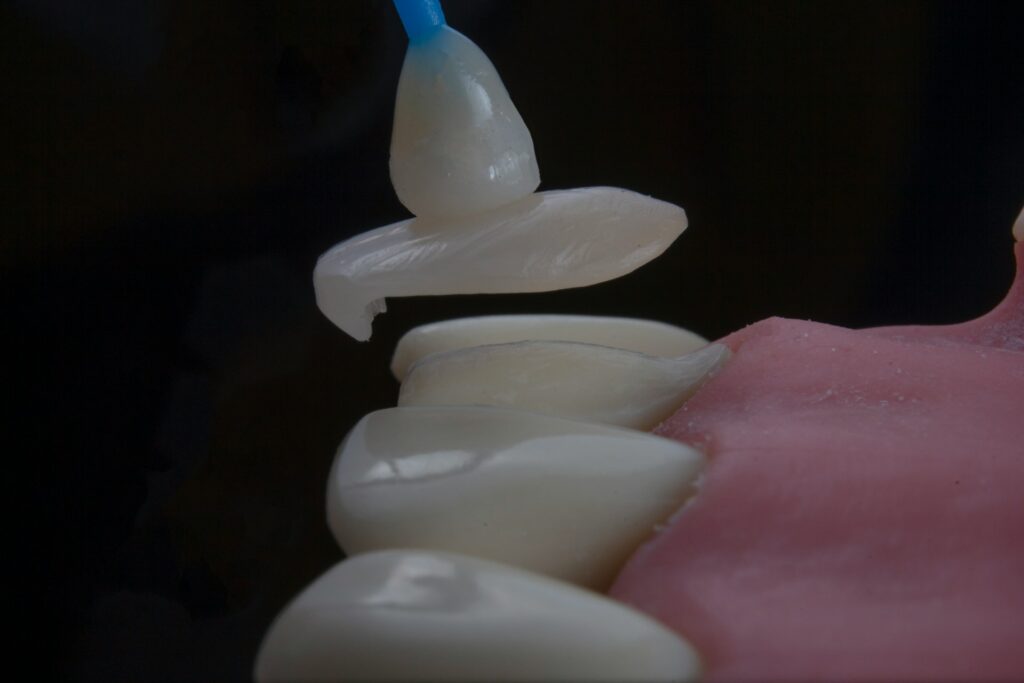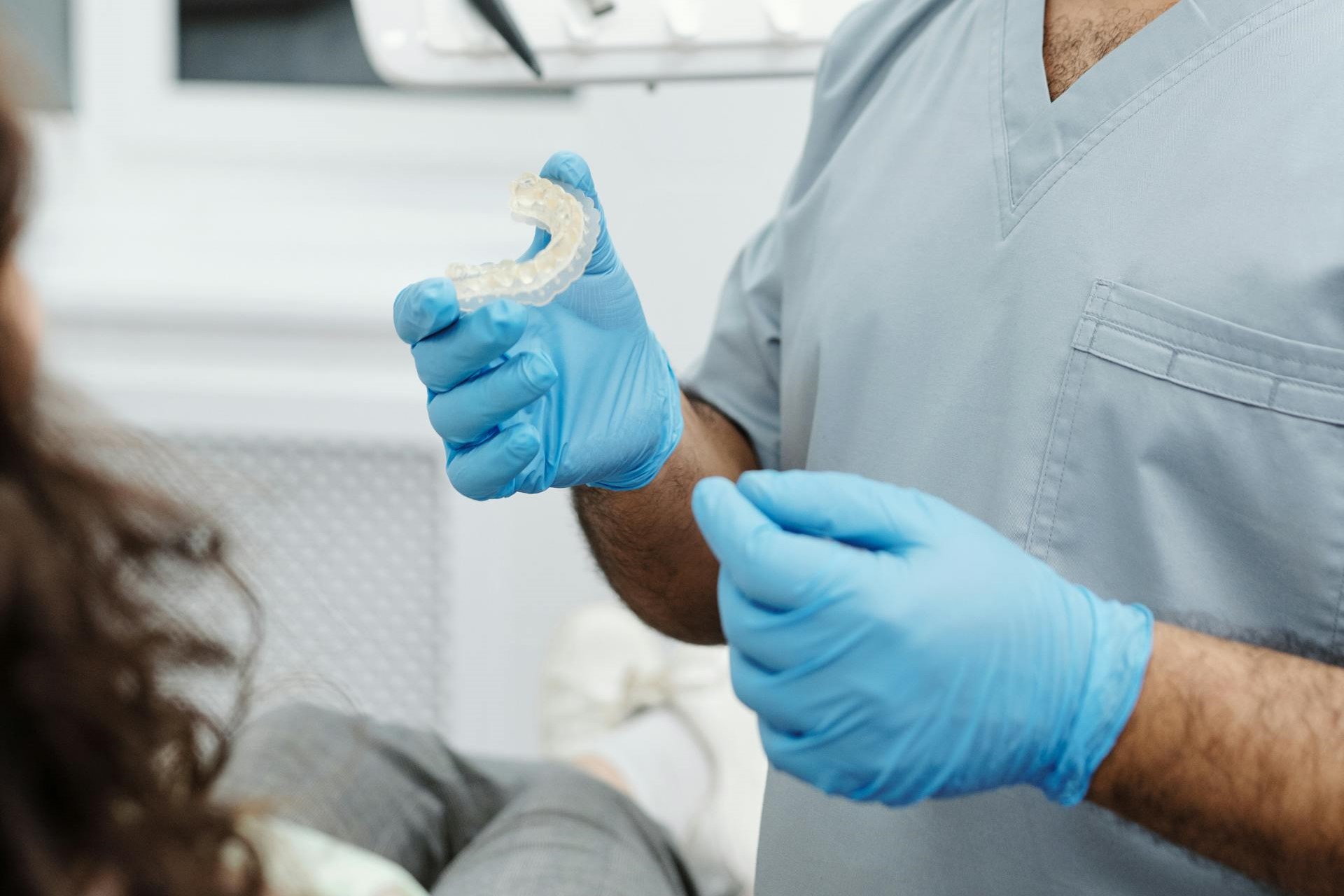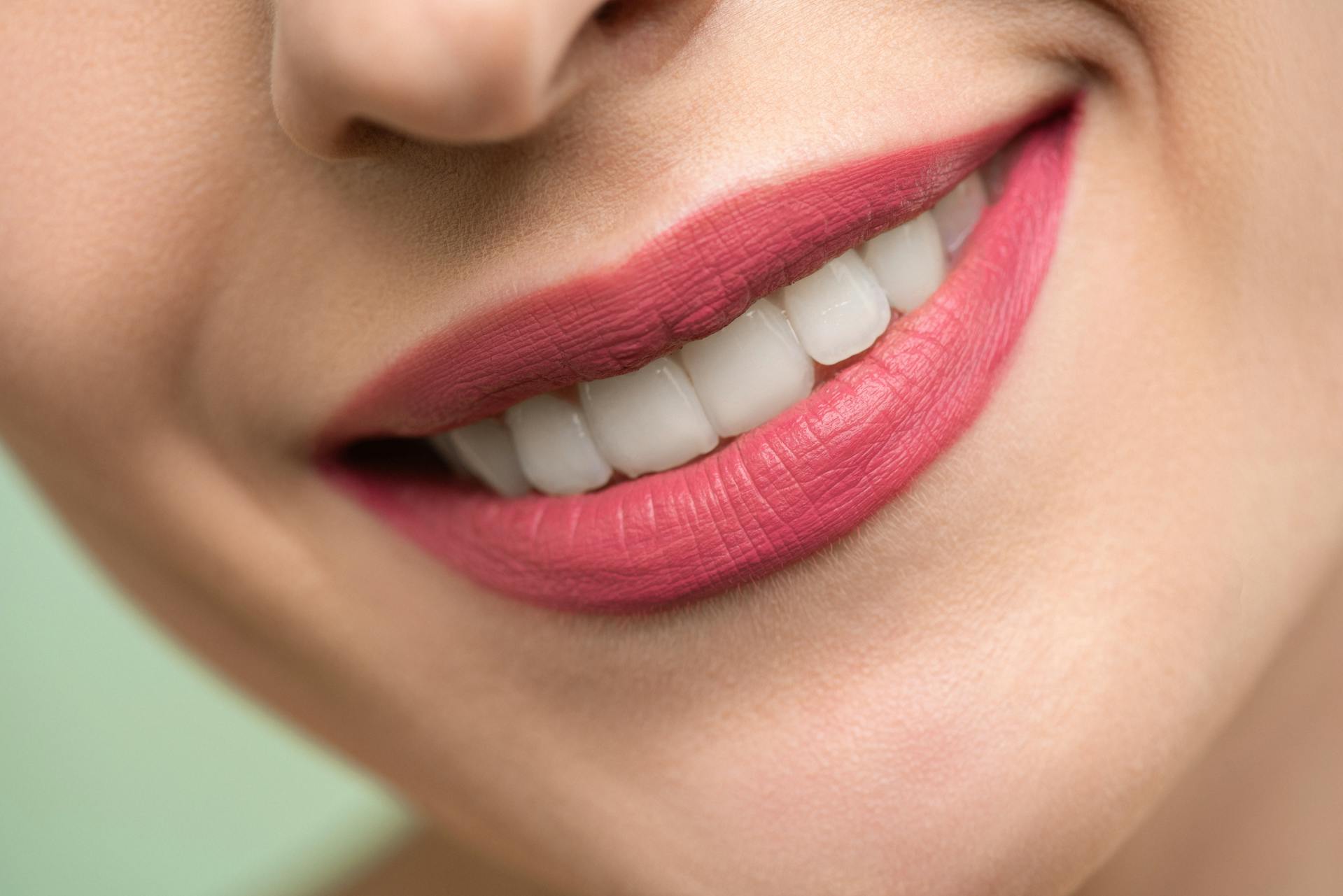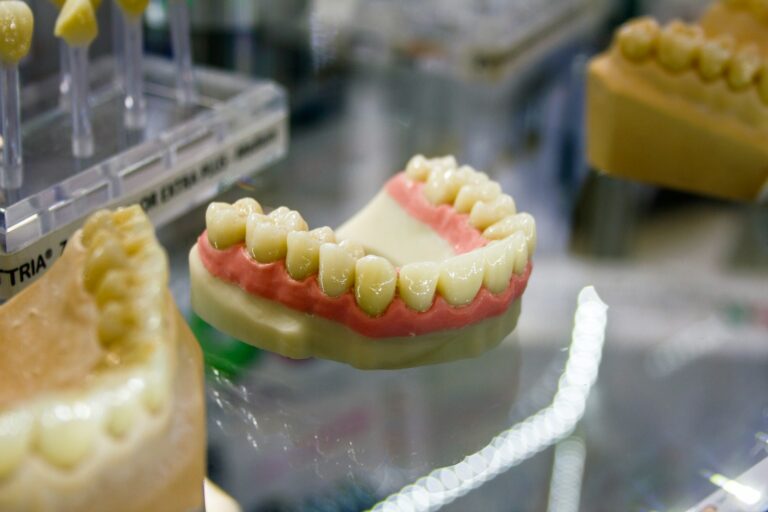
Dental veneers have gained popularity as a cosmetic dental solution, providing an effective means to enhance the appearance of one’s smile while addressing minor imperfections.
These thin, custom-made shells, usually made from porcelain or resin, are designed to cover the front surface of the teeth, resulting in a bright, uniform appearance.
In this discussion, we will explore the various types of dental veneers, the procedure for obtaining them, their associated benefits and risks, and who qualifies as an ideal candidate for this treatment.
Learn how veneers can enhance your smile and elevate your confidence!
What Are Dental Veneers?

Dental veneers have become a widely embraced solution in cosmetic dentistry, aimed at improving the appearance of one’s teeth. They provide a durable and visually appealing option for tooth restoration.
These thin shells, crafted from materials such as porcelain or composite, are custom-made to fit over the front surface of the teeth, effectively concealing imperfections such as discolouration, chips, and gaps.
The process of applying veneers begins with a thorough assessment of dental health, paying particular attention to the condition of the tooth enamel, which is crucial for achieving a successful result. Additionally, dental veneers can play a significant role in enhancing one’s overall smile, often resulting in increased confidence and satisfaction with dental aesthetics.
What Are the Different Types of Dental Veneers?
There are primarily two types of dental veneers: porcelain veneers and composite veneers. Each type offers distinct benefits and aesthetic appeal for transforming smiles.
Porcelain veneers are renowned for their impressive resistance to staining, making them a durable choice for maintaining a radiant smile over time. While the cost of veneers varies, porcelain options tend to be a premium investment due to their custom fabrication in a dental laboratory, ensuring a precise fit and a natural appearance.
In contrast, composite veneers offer a more budget-friendly solution without compromising on effectiveness. These are typically crafted chairside by the dentist, allowing for on-the-spot customisation to address immediate concerns like tooth shape or colour.
Both options cater to different needs, providing patients with versatile choices that align with their aesthetic goals, budget, and desired timeline, while significantly enhancing confidence and overall appearance.
How Do Dental Veneers Work?
The process of obtaining dental veneers consists of several essential steps that ensure a precise fit and the best possible aesthetic results.
It begins with a dental consultation, where your oral health will be evaluated, and the most suitable veneer options for your smile design will be discussed. This usually involves taking dental impressions to create a mould of your teeth, which will aid in the fabrication of your custom veneers at a dental laboratory.
When it comes time for the veneer installation, your dentist will prepare the tooth structure by reshaping the enamel and using dental bonding to secure the veneer in place. This approach offers a minimally invasive solution for restoring teeth.
What Is the Procedure for Getting Dental Veneers?
The veneer procedure typically begins with a comprehensive dental consultation, which may involve dental X-rays and a thorough examination of your oral health to confirm your suitability for veneers. During this consultation, you will discuss your aesthetic goals, and together with your dentist, you will determine the most appropriate type of veneer for your needs.
Following this, your dentist will prepare your teeth by carefully reshaping the tooth enamel, ensuring that the veneer fits seamlessly. This step is crucial for achieving the correct fit, which significantly impacts the overall success of your smile enhancement.
It is important for patients to feel comfortable during this initial appointment, so they are encouraged to ask questions and voice any concerns they may have about the process.
Once the teeth are prepared, impressions will be taken to create custom veneers that are tailored to the unique shape and colour you desire. While the final veneers are being crafted in a dental laboratory, temporary veneers may be placed to maintain your smile.
After the custom veneers are ready, a second visit will take place for a trial fitting. This step is essential to ensure proper alignment and aesthetics, emphasising the importance of your feedback in refining the final result.
This collaborative effort between the dentist and the patient ultimately leads to a successful outcome that satisfies both functional and aesthetic expectations.
What Is the Recovery Process for Dental Veneers?
Following the placement of dental veneers, the recovery process is generally quite straightforward, allowing most patients to return to their normal activities almost immediately. It is vital to adhere to proper dental care and maintenance practices to ensure the longevity and effectiveness of your veneers.
Some individuals may experience mild tooth sensitivity after the procedure, but this typically subsides within a few days. Regular dental check-ups are advisable to monitor both your oral health and the condition of your veneers, facilitating any necessary adjustments or maintenance.
During the initial recovery period, maintaining excellent oral hygiene is of utmost importance. Gentle brushing and careful flossing will help protect both the veneers and the underlying teeth. Additionally, those who have received veneers should be cautious about their diet, steering clear of overly hard or sticky foods that might compromise the bond of the veneers.
Engaging in routine dental visits not only helps monitor any sensitivity but also ensures that the aesthetic and structural integrity of the veneers is maintained. Ultimately, taking a proactive approach to veneer care enhances the overall patient experience and promotes lasting results.
What Are the Benefits of Dental Veneers?

Dental veneers present a variety of benefits that enhance both dental aesthetics and overall oral health, which is why they are often a preferred option in cosmetic dentistry.
Essentially, they provide a natural-looking remedy for issues such as tooth discolouration, chips, and misalignment, effectively improving the appearance of one’s teeth.
Plus their cosmetic advantages, veneers also play a protective role by safeguarding the underlying tooth structure from further damage, thereby promoting long-lasting oral health.
By addressing imperfections in one’s smile, veneers can greatly enhance a person’s confidence and lead to more desirable aesthetic results.
1. Improves Appearance of Teeth
One of the most notable advantages of dental veneers is their remarkable ability to enhance the appearance of teeth, making them a popular choice for individuals seeking a smile makeover. Veneers effectively conceal tooth imperfections such as discolouration, gaps, and chips, resulting in a more uniform and visually appealing smile.
This cosmetic procedure not only improves the aesthetic quality of your teeth but also has a positive impact on your overall confidence and self-esteem.
These custom-made shells are designed to adhere to the front surface of the teeth, striking an ideal balance between functionality and aesthetics. By transforming uneven or misshapen teeth, veneers can significantly change one’s overall facial appearance, contributing to a more harmonious look.
They can effectively address issues like excessive wear and even some alignment concerns, enabling individuals to achieve their desired smile without the need for extensive orthodontic procedures.
With a range of options available, including porcelain and composite resin, individuals can select veneers that align with their specific enhancement goals, making them a versatile solution in the field of cosmetic dentistry.
2. Fixes Minor Dental Imperfections
Dental veneers serve as effective solutions not only for enhancing appearance but also for addressing minor dental imperfections that can impact your overall smile. They can correct issues such as misalignment, irregular tooth shapes, and slight gaps, providing a seamless and natural look that aligns with your cosmetic dentistry goals.
This restoration option is especially beneficial for individuals who may not require extensive dental treatment but still seek significant improvements in their smile aesthetics.
By using thin, custom-made shells that are bonded to the front of the teeth, veneers can transform smiles with remarkable efficiency. This method not only enhances visual appeal but also boosts self-confidence, allowing individuals to express themselves freely and without hesitation.
Whether dealing with discolouration or minor structural defects, these dental enhancements offer a non-invasive way to achieve a uniform and radiant smile. Since they can be tailored to match the natural teeth perfectly, veneers provide an aesthetically pleasing solution that caters to the diverse needs of those looking to improve their dental appearance without resorting to more invasive procedures.
3. Long-lasting Solution
Dental veneers are well-regarded for their remarkable longevity, often lasting many years when cared for properly. This makes them a valuable investment in enhancing one’s smile.
Typically, the lifespan of these dental solutions ranges from 10 to 20 years, influenced by factors such as oral hygiene practices, dietary habits, and the specific type of veneer material selected. For example, high-quality porcelain veneers are known for their excellent resistance to stains and wear, which contributes to their extended lifespan. In contrast, while composite veneers are durable, they may require more frequent touch-ups.
Additionally, regular dental check-ups and professional cleanings are essential for maintaining the effectiveness of veneers, as they help ensure that any potential issues are identified and addressed promptly.
Ultimately, the choice of material and ongoing maintenance play a significant role in determining how long these aesthetic enhancements will last, allowing individuals to enjoy their revitalised smiles for many years.
What Are the Risks of Dental Veneers?

Dental veneers provide a range of benefits, but it is essential to consider the potential risks associated with the procedure to make a well-informed decision.
Some patients may find that they experience tooth sensitivity after the application of veneers, especially if the tooth enamel was reshaped during the preparation process.
There is also a risk of damaging the veneers if proper care and maintenance are not followed. This highlights the necessity of a comprehensive dental examination and clear communication of patient expectations when considering this cosmetic enhancement.
1. Tooth Sensitivity
Tooth sensitivity is a common concern for patients who have received dental veneers, especially during the initial recovery phase. This sensitivity can arise from the removal of some tooth enamel, which may expose the underlying dentine.
To effectively manage this risk, it is important to adhere to the recommended dental care and oral hygiene practices, as these can help alleviate discomfort and promote overall dental health.
It is essential to understand that sensitivity can stem from various factors, including the type of veneer used or an individual’s unique dental anatomy. Effective management strategies may include using desensitising toothpaste, maintaining a consistent oral care routine, and scheduling regular check-ups with the dentist.
Patients should also be educated on the importance of avoiding overly abrasive products and maintaining a balanced diet, as these factors can exacerbate sensitivity.
By adopting a patient-centric approach, individuals can ensure they are well-informed about how to protect their investment in veneers while enjoying both lasting comfort and aesthetic enhancements.
2. Risk of Damage to Veneers
One notable risk associated with dental veneers is the potential for damage, particularly if proper maintenance and care practices are not followed after the procedure. Depending on the materials used, porcelain veneers may be more susceptible to chipping or cracking when subjected to excessive force, such as grinding or biting into hard substances.
Therefore, it is crucial to follow dental advice regarding veneer maintenance to ensure their longevity and effectiveness as a cosmetic solution.
To safeguard veneers from unintended harm, individuals might consider incorporating preventative measures into their daily routines. For instance, wearing a mouthguard during sports activities or at night, particularly if teeth grinding is an issue, can prove beneficial.
Additionally, regular dental check-ups allow professionals to monitor the condition of the veneers and promptly address any concerns. Using non-abrasive toothpaste and soft-bristled toothbrushes can also help preserve the surface integrity of the veneers.
By understanding the importance of high-quality materials in veneer composition, one can appreciate how these strategies not only enhance aesthetic appeal but also contribute to the longevity of their dental investment.
3. Can’t be Reversed
One important consideration before deciding on dental veneers is that the procedure is irreversible. Once applied, the natural tooth structure cannot be restored to its original state.
This irreversibility stems from the removal of a portion of the tooth enamel during the preparation process. It is crucial for patients to understand this aspect to set realistic expectations for cosmetic enhancement and to assess the suitability of veneers for their individual needs.
Therefore, a comprehensive consultation with a skilled dentist is essential to discuss all potential risks and benefits associated with this treatment. During this evaluation, the dental professional will assess the patient’s oral health, discuss aesthetic goals, and outline alternatives that may provide a less invasive solution.
This open dialogue give the power tos patients to make informed decisions, ensuring they are aware of how veneers might enhance their smile while also understanding the long-term implications of their choices on dental health.
The goal is to strike a balance between beauty and function, making careful planning vital before committing to this enduring cosmetic change.
Who Is a Good Candidate for Dental Veneers?

Identifying suitable candidates for dental veneers requires a comprehensive dental evaluation to assess the condition of their teeth and gums, as various factors can impact the effectiveness of this cosmetic procedure.
Ideally, candidates should present with healthy teeth and gums, as this provides a strong foundation for the application of veneers.
Furthermore, individuals who have realistic expectations about the outcomes of their cosmetic dentistry journey are more likely to benefit from personalised treatment plans designed to address their specific dental needs.
1. Healthy Teeth and Gums
Healthy teeth and gums are essential criteria for determining whether someone is a suitable candidate for dental veneers, as the condition of one’s oral health significantly influences the success of the procedure. A thorough dental examination will evaluate the condition of the gums and existing tooth structure, ensuring that no underlying issues could compromise the cosmetic enhancement that veneers provide.
This emphasis on oral health not only safeguards the longevity of the veneers but also supports overall dental well-being.
When considering cosmetic procedures, it is important for potential candidates to recognise that strong oral hygiene practices and regular dental evaluations lay the groundwork for optimal outcomes. The condition of the gums, for example, should be free from disease, as any inflammation or infection can impede adhesion and lead to complications after application.
A comprehensive assessment identifies any necessary treatments in advance, ensuring that the enamel is properly prepared for veneer placement. Prioritising dental check-ups, therefore, not only enhances aesthetic results but also contributes to a healthier smile that can endure for years to come.
2. Good Oral Hygiene Habits
Good oral hygiene habits are critical for anyone considering dental veneers, as they are integral to maintaining both the veneers and overall dental health. Regular brushing, flossing, and routine dental check-ups not only extend the lifespan of the veneers but also protect the surrounding natural teeth and gums. Patients who are dedicated to maintaining excellent oral hygiene are more likely to achieve satisfactory results from their veneer application.
Utilising a soft-bristled toothbrush and fluoride toothpaste can help prevent damage to the veneers while also strengthening natural teeth. It is equally important to be mindful of one’s diet; avoiding overly abrasive foods and drinks can help preserve the integrity of the veneers.
Incorporating an antibacterial mouthwash can further reduce plaque build-up and inflammation of the gums. Additionally, for those who grind their teeth, discussing the possibility of a night guard with a dental professional can be a wise step to prevent unnecessary wear on both veneers and natural teeth.
Establishing these habits will not only enhance the appearance of the veneers but also significantly contribute to the overall well-being of one’s dental health.
3. No Teeth Grinding or Clenching Habits
Candidates for dental veneers should ideally not have a history of teeth grinding or clenching, as these habits can detrimentally affect both the functionality of the teeth and the longevity of the veneers. Such behaviours impose excessive pressure on the veneers, heightening the risk of damage and compromising the aesthetic results. Addressing these habits prior to the application of veneers is therefore essential for ensuring a successful outcome.
Beyond the physical stress on the veneers, teeth grinding, commonly referred to as bruxism, can lead to pain and discomfort in the jaw and surrounding muscles, which can result in compromised oral health.
Individuals contemplating dental veneers should be aware that taking corrective measures—such as employing stress management techniques, using nighttime mouthguards, and consulting with a dentist—can significantly reduce these risks.
By adopting effective behavioural modifications, they can help protect not only their new veneers but also their overall dental health, ensuring that their investment retains both its aesthetic and functional integrity for years to come.
Frequently Asked Questions
What are dental veneers?
Dental veneers are thin, tooth-coloured shells made of porcelain or composite resin that are custom-made to cover the front surface of your teeth. They are used to improve the appearance of your teeth by correcting imperfections such as discolouration, cracks, or gaps.
How do dental veneers work?
Dental veneers work by bonding to the front surface of your teeth, changing their colour, shape, size, or length. The process involves removing a small amount of enamel from the teeth to create space for the veneers. Then, the veneers are custom-made and bonded to the teeth using a special adhesive.
What are the benefits of dental veneers?
Dental veneers can improve the appearance of your teeth by creating a brighter, whiter, and more even smile. They are also durable and stain-resistant, and can last for 10-15 years with proper care. Veneers can also improve the shape, size, and alignment of your teeth, giving you a more symmetrical and proportionate smile.
Who is a good candidate for dental veneers?
Good candidates for dental veneers are individuals with healthy teeth and gums, who have minor cosmetic dental concerns such as discolouration, cracks, chips, or gaps. Those with severe dental issues may require other treatments such as braces or crowns. It is best to consult with a dentist to determine if veneers are the right option for you.
Are there any risks or side effects of dental veneers?
In general, dental veneers are a safe and effective cosmetic treatment. However, some risks and side effects may include tooth sensitivity, discomfort, or changes in bite alignment. These can be addressed by your dentist and are usually temporary. It is important to follow proper oral hygiene and care to maintain the longevity of your veneers.
How can I care for my dental veneers?
You can care for your dental veneers by brushing and flossing regularly, avoiding hard and sticky foods, and visiting your dentist for regular check-ups and cleanings. It is also important to avoid habits such as biting your nails or chewing on hard objects, as these can damage your veneers. With proper care, your veneers can last for many years and maintain their beautiful appearance.






